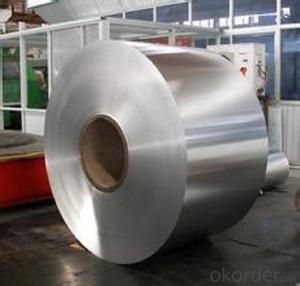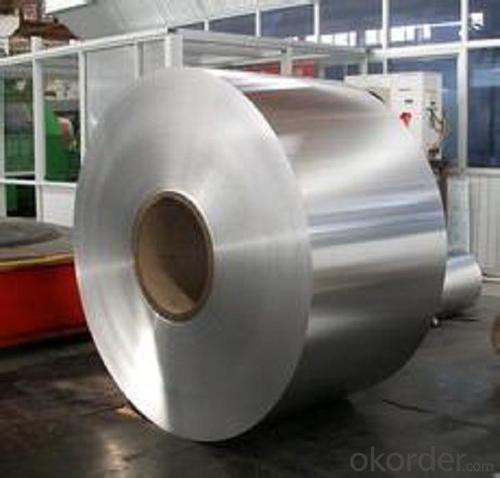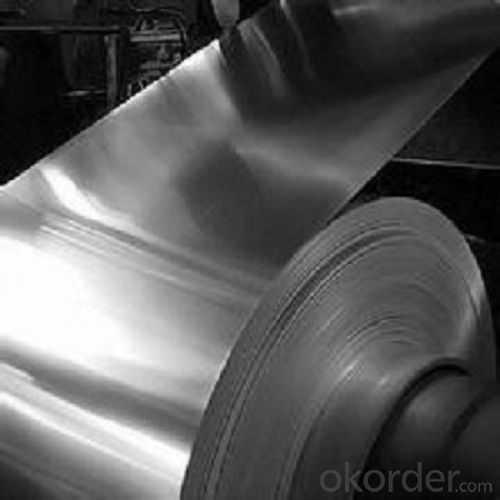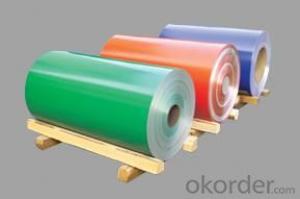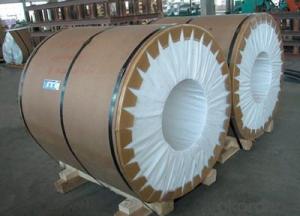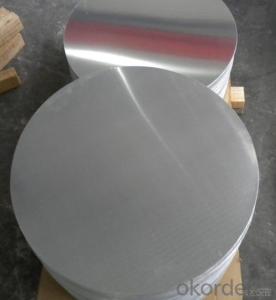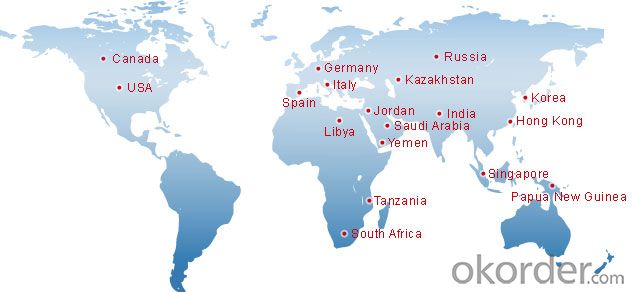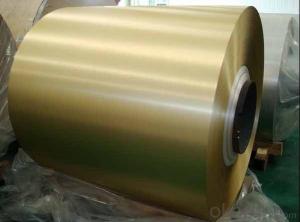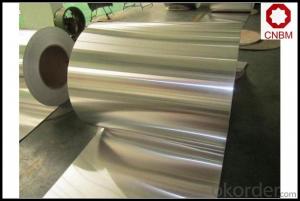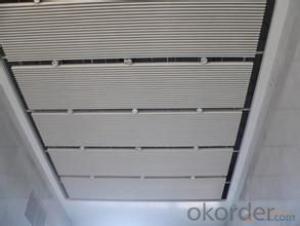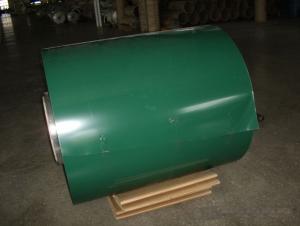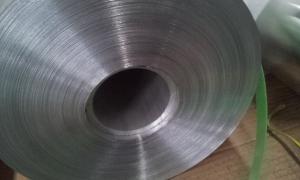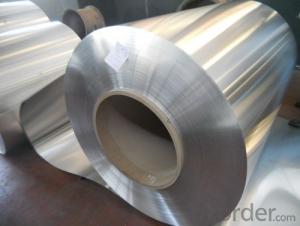Aluminum Coil Prices for Roll Coated Aluminum Hot Coil for Ceiling Panel
- Loading Port:
- Shanghai
- Payment Terms:
- TT OR LC
- Min Order Qty:
- 2.5
- Supply Capability:
- 5000 m.t./month
OKorder Service Pledge
OKorder Financial Service
You Might Also Like
Specification
Roll Coated Aluminum Hot Coil for Ceiling Panel
l Product Description
| Division | Description | Application | Feature |
| 1000 SERIES | 1050 1060 1070 1100 1235representative series aluminum plate is also known as pure aluminum, in the series in 1xxx series belongs to all the alumina quantity of a maximum number of series. Purity can achieve 99.00% above. | Utensil, decoration, Reflecting plate, printing plate, heatproof plate,cookware | Easy to process and weld,resistant to rust,high,conductibility of electricity and heat,low strength |
| 3000 SERIES | 3xxx series aluminum represents 3003 3004,3005, 3 A21 primarily. And can be called in the 3xxx series aluminum antirust aluminum production process more outstanding. The 3xxx series aluminum plate is by manganese as the main component. Content at 1.0-1.5 between. Is a rust-proof function better series. Conventional application in the air conditioning, the refrigerator, such as car in damp environment | Utensil(F/P, inside of rice cooker), aluminum can,material for interior and exterior of building,chemical equipment,Cellular Phone | 20% higher strength than the 1100 series, easily welded and brazed, good antirust,ability Non-heat treatable |
| 5000 SERIES | 5xxx series representatives 5052 5005 5083,5754. The 5000 series aluminum alloy aluminum belong to the more commonly used series, the main elements for magnesium, with magnesium in the amount between 3-5%. And can be called aluminum magnesium alloy. Key features for low density, high tensile strength, elongation rate is high. In the same area under the weight of the magnesium alloy aluminum less than other series. | Ship board heatproof apparatus, material for interior and exterior of building, Parts of Electronic tools.Automobile Components | Excellent corrosion resistance andweld ability together with Easy to process and weld and superior hardness &heatproof Can be anodized for increased corrosion resistance |
| 6000 SERIES | 6xxx series represents 6061 mainly contain magnesium and silicon of two elements, so focused on the 4000 series and the advantages of the 5000 series 6061 is a cold treatment aluminum forging products, apply to fight against corrosion, oxidizing demanding applications. | IT equipment & facility, Mould material, motor material, automatic line, machine & plant etc | Easy to process , good corrosion resistance, high toughness and processed without distortion after heat-treatable, superior surface treatment |
| 7000 SERIES | 7000 aluminum alloy is another common alloy, wide variety. It contains zinc and magnesium. The best strength in the common aluminum alloy is 7075 alloy, but it can't be welded, and its corrosion resistance is rather poor, many manufacturing parts with CNC cutting is 7075 alloy. | The aerospace industry & High strength accessories | 7000 series is high tensile to process with special alloy |
l Packaging & Delivery
Packaging detail: Standard seaworthy exporting carton, Wooden pallets, waterproof paper and plastic coverage or as customer's requirements
Delivery detail: about 25 days from received original L/C or advance payment
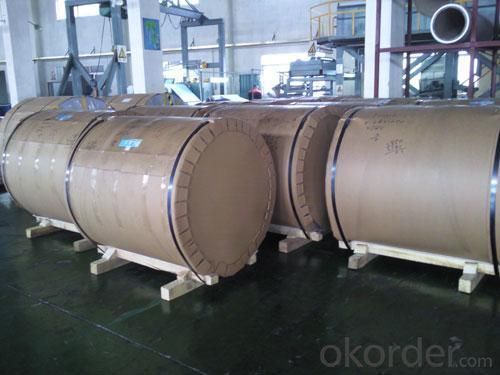
l Company Profile
CNBM International Corporation, China National Building Materials (Group) Corporation, is one of the largest companies in China building material & equipment industry, with 42,800 employees and sales in 2005 of US Dollar 4.395 billion. In 2006, China National Building Material Company Limited was listed on Hong Kong Stock Market with the stock code as 3323. |
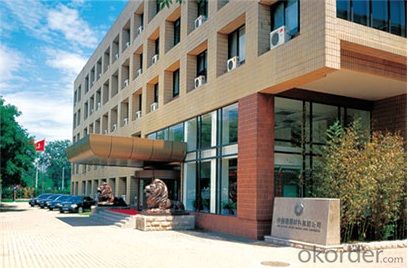
l CNBM World Wide
l Product Images
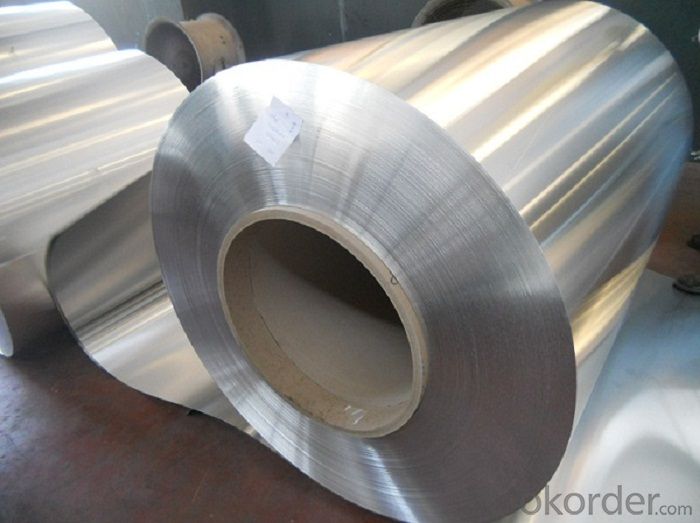
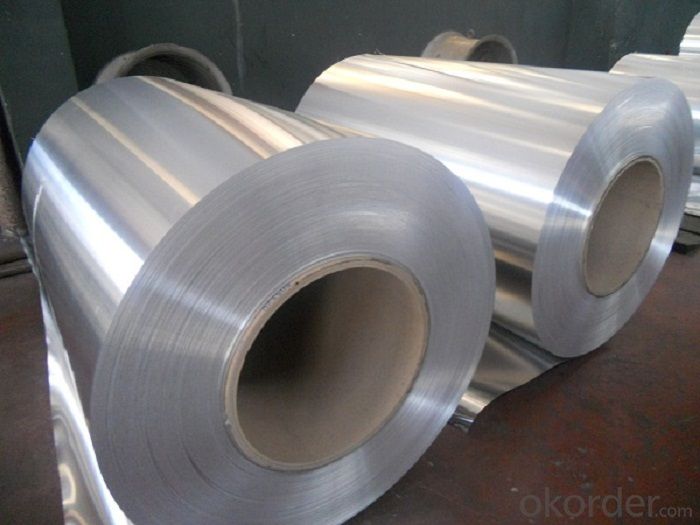
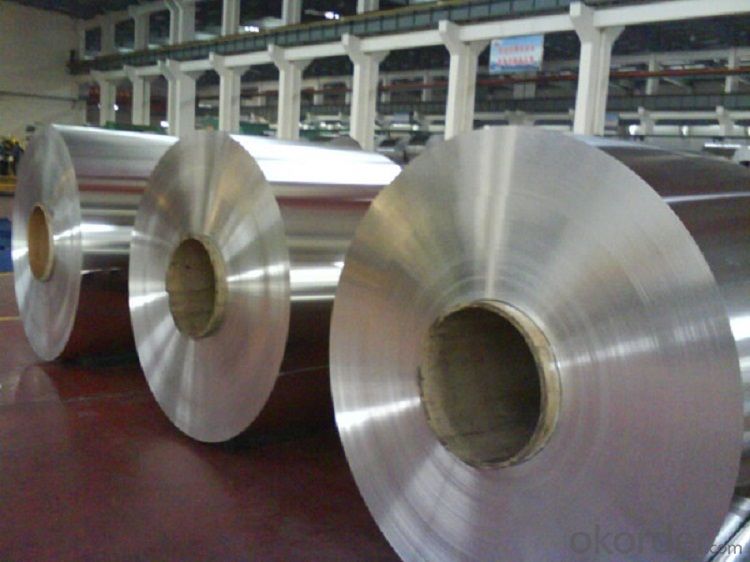
l Certificates
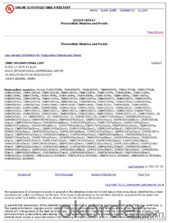
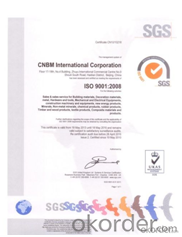
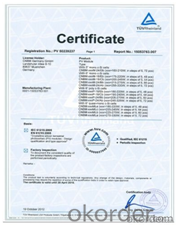
l FAQ
Q: Do you provide free samples?
A: Yes, free samples will be sent to you on freight at destination.
Q: Can I get your latest products catalogue?
A: Yes, it will be sent to you in no time.
Q: What is the MOQ?
A: 2.5 tons
Q: What are your payment terms?
A: We accept L/C, T/T
- Q: What are the different grades of aluminum used in coil manufacturing?
- There are several different grades of aluminum used in coil manufacturing, each with its own unique properties and applications. The most commonly used grades include 1100, 3003, 5052, and 6061. - Grade 1100 is a commercially pure aluminum with excellent corrosion resistance and good formability. It is often used in chemical equipment, heat exchangers, and food handling equipment. - Grade 3003 is a non-heat treatable alloy with good corrosion resistance and moderate strength. It is commonly used in cooking utensils, roofing, and general sheet metal work. - Grade 5052 is a high-strength alloy with good formability and excellent corrosion resistance. It is frequently used in marine applications, such as boat hulls and components, as well as in automotive parts and appliances. - Grade 6061 is a heat treatable alloy with excellent strength and good machinability. It is commonly used in structural applications, such as aircraft parts, bike frames, and automotive components. These grades of aluminum offer a range of properties and characteristics, allowing manufacturers to choose the most suitable grade for their specific requirements in coil manufacturing.
- Q: What are the manufacturers of color coated aluminium rolls made of aluminium in Jiangsu?
- Products are widely used in high-end architectural curtain walls and interior and exterior wall decoration, roofing systems, materials, food packaging, home appliances and other fields. Our products are of high quality, bright colors, complete specifications, and can meet the different needs of customers.
- Q: This question asks if aluminum coils are susceptible to rusting.
- <p>Aluminum coils do not rust in the traditional sense. Aluminum reacts with oxygen in the air to form a thin, protective layer of aluminum oxide on its surface, which prevents further corrosion. This oxide layer is different from rust, which is iron oxide. While aluminum can tarnish or corrode under certain conditions, such as exposure to certain chemicals or harsh environments, it does not rust like iron or steel. Proper storage and handling can help maintain the integrity of aluminum coils and prevent any form of corrosion.</p>
- Q: Explain how aluminum coils impact transportation, including considerations for logistics and safety.
- <p>Aluminum coils significantly affect transportation due to their weight and size. They are heavy and bulky, which requires specialized vehicles for transportation to ensure stability and prevent damage. The weight of aluminum coils can impact fuel efficiency and may require more powerful vehicles, increasing fuel consumption and emissions. Additionally, the transportation of aluminum coils must adhere to strict safety regulations to prevent accidents, especially when transported over long distances or on public roads. This can involve securing the load properly, using appropriate transport methods, and ensuring drivers are trained to handle heavy loads. The logistics of transporting aluminum coils can be complex, requiring careful planning and coordination to minimize delays and costs.</p>
- Q: Can aluminum coils be painted or printed on?
- Indeed, aluminum coils possess the capability to undergo painting or printing processes. Aluminum, being a versatile material, can be coated or painted to achieve a wide range of finishes and colors. Prior to painting or printing, the surface of aluminum coils can be readied through a pre-treatment process involving cleaning, etching, and the application of a primer. This pre-treatment ensures that the surface is prepared adequately. The painting of aluminum coils involves the application of a coating system that typically comprises a primer, a color coat, and a protective topcoat. Various methods, such as spraying, roll coating, or coil coating, can be employed to apply the paint. Coil coating, specifically, is a commonly utilized method wherein the paint is applied to the coil prior to shaping it into the desired form. This method guarantees a uniform and consistent finish. On the other hand, printing on aluminum coils is also feasible using techniques like screen printing, digital printing, or lithography. These techniques enable the printing of intricate designs, patterns, or even photographs onto the surface of the aluminum coil. One must consider that the selection of the paint or printing method may depend on specific requirements such as durability, weather resistance, or aesthetic preferences. Additionally, ensuring a successful and long-lasting paint or print finish on aluminum coils necessitates proper surface preparation, appropriate coating selection, and adherence to recommended application guidelines.
- Q: Can aluminum coils be used in the production of electronic components?
- Indeed, electronic components can utilize aluminum coils in their production. Aluminum, a highly versatile and extensively employed metal across diverse industries, including electronics, harbors numerous benefits. Notably, it possesses a lightweight nature, exceptional thermal conductivity, resistance to corrosion, and superb electrical conductivity. These remarkable properties render aluminum coils fitting for deployment in electronic components, encompassing capacitors, transformers, inductors, and heat sinks. By incorporating aluminum coils in electronic components, the dissipation of heat becomes more efficient, performance is enhanced, and the overall weight of electronic devices is reduced.
- Q: Can aluminum coils be used in the production of aluminum composite panels?
- Indeed, the utilization of aluminum coils is viable for the manufacturing process of aluminum composite panels. Frequently, aluminum coils serve as the foundational material in the production of ACPs. These panels are fabricated by adhering a slender aluminum coil to a thermoplastic core with the aid of a bonding adhesive. The presence of the aluminum coil ensures the panel's robustness and steadiness, while the thermoplastic core provides insulation and rigidity. The incorporation of aluminum coils permits flexibility in the panel's design and customization. Moreover, aluminum coils possess qualities such as durability, lightweightness, and resistance to corrosion, rendering them an optimal choice for ACP production.
- Q: What is the reflectivity of aluminum coils?
- When we talk about the reflectivity of aluminum coils, we are referring to their capacity to reflect light. Aluminum is renowned for its remarkable reflectivity, boasting a reflectivity percentage ranging from 80 to 90%. This outstanding feature makes it an excellent material for numerous applications that require reflective qualities, including the production of mirrors, solar panels, and lighting fixtures. The superior reflectivity of aluminum coils enables efficient light reflection, resulting in minimal energy wastage and optimal performance for these applications.
- Q: Can aluminum coils be used for insulation purposes?
- No, aluminum coils cannot be used for insulation purposes. Aluminum is a good conductor of heat and electricity, which means it would actually transfer heat rather than insulate it. Insulation materials are typically chosen for their ability to resist heat flow and reduce energy transfer. Materials like fiberglass, foam, or mineral wool are commonly used for insulation purposes as they have low thermal conductivity and can effectively trap air pockets to reduce heat transfer.
- Q: How do aluminum coils impact energy efficiency?
- Aluminum coils play a vital role in enhancing energy efficiency across various applications, such as heating, ventilation, and air conditioning (HVAC) systems, refrigerators, and heat pumps. The outstanding heat transfer properties of aluminum are the primary reason for their positive impact on energy efficiency. The excellent heat conductivity of aluminum enables it to quickly absorb and release thermal energy. In HVAC systems, aluminum coils effectively transfer heat between the indoor and outdoor units. This efficient heat transfer reduces the system's workload, enabling it to operate more efficiently and consume less energy. Moreover, aluminum coils possess the advantages of being lightweight and having a large surface area, further enhancing their heat transfer capabilities. By reducing the overall weight of the system, their lightweight nature results in lower energy consumption. The increased surface area promotes better contact between the air and the coils, facilitating more effective heat exchange. Another benefit of aluminum coils is their resistance to corrosion, a common issue in HVAC systems. Corrosion can hinder the efficiency of heat transfer, leading to increased energy consumption. The corrosion resistance of aluminum coils ensures long-lasting performance, maintaining their efficiency and reducing the need for frequent maintenance or replacement. To summarize, aluminum coils significantly contribute to energy efficiency by facilitating efficient heat transfer, reducing the workload on HVAC systems, and minimizing energy consumption. Their lightweight nature, large surface area, and corrosion resistance further enhance their positive impact on energy efficiency.
Send your message to us
Aluminum Coil Prices for Roll Coated Aluminum Hot Coil for Ceiling Panel
- Loading Port:
- Shanghai
- Payment Terms:
- TT OR LC
- Min Order Qty:
- 2.5
- Supply Capability:
- 5000 m.t./month
OKorder Service Pledge
OKorder Financial Service
Similar products
Hot products
Hot Searches
Related keywords
